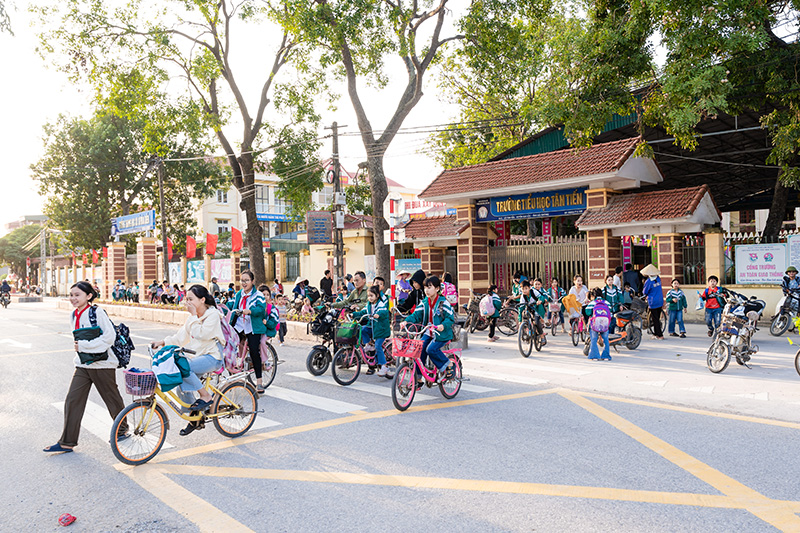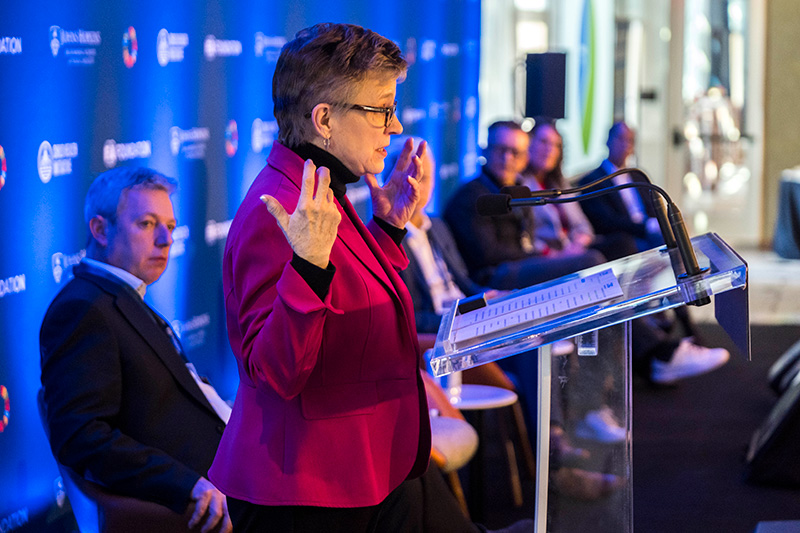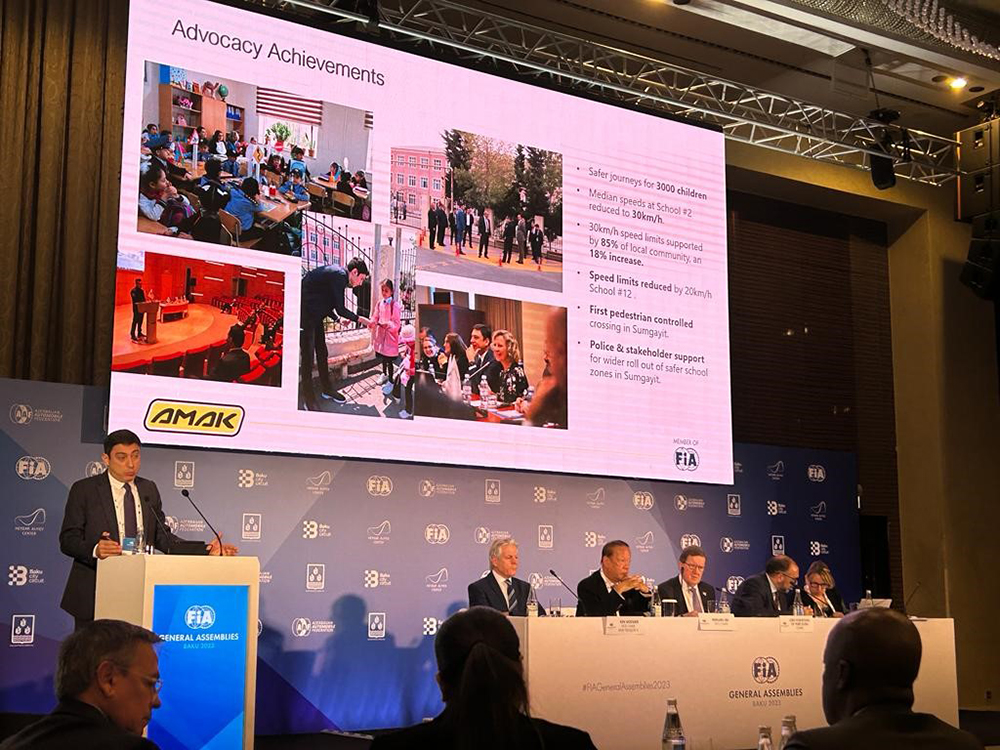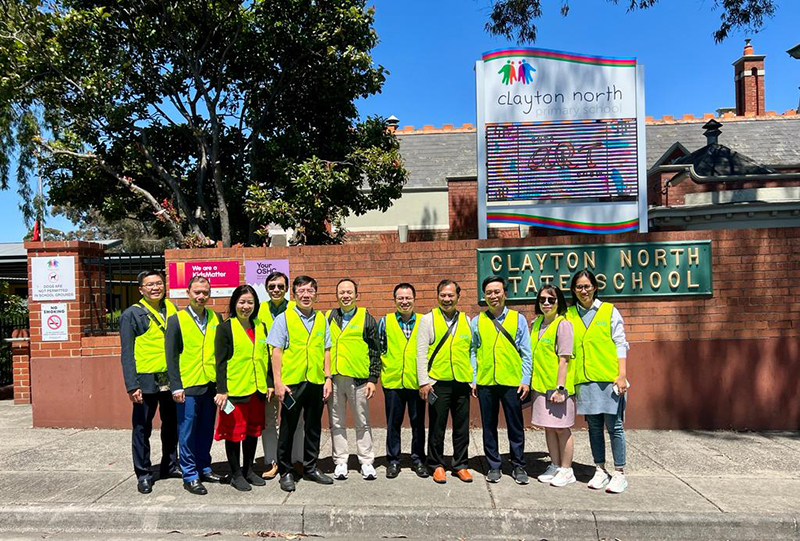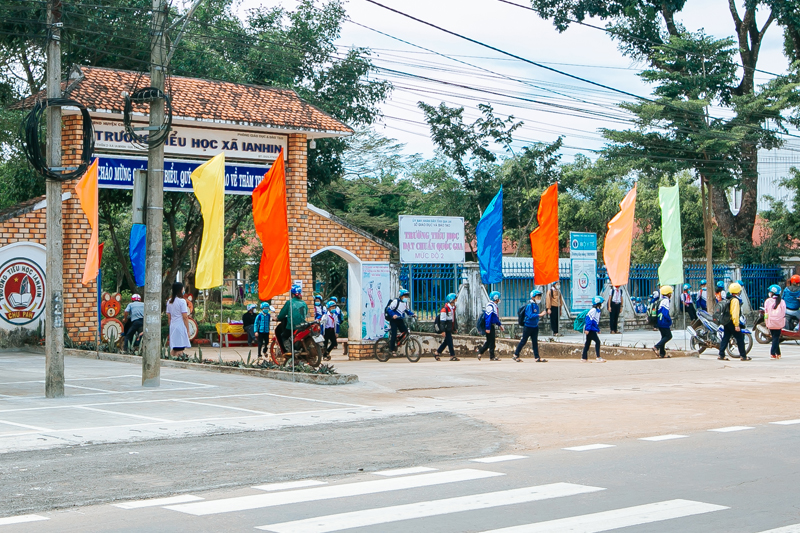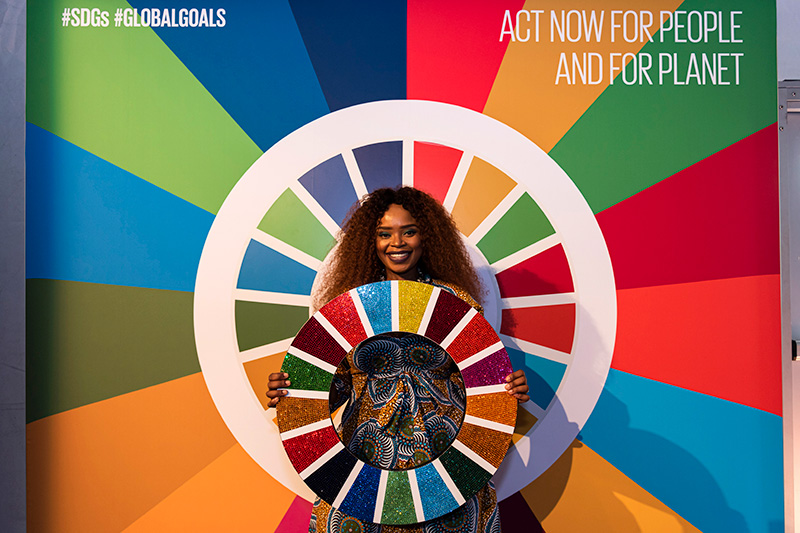UN HLPF session calls for action on child health and mobility
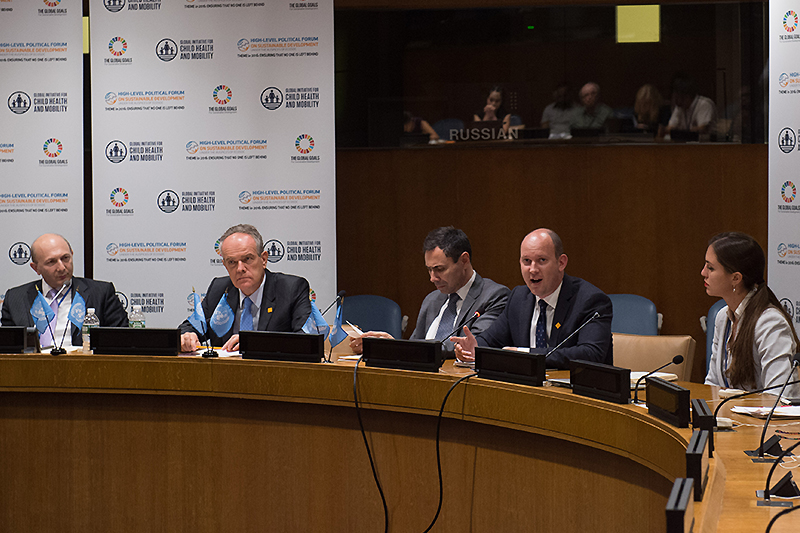
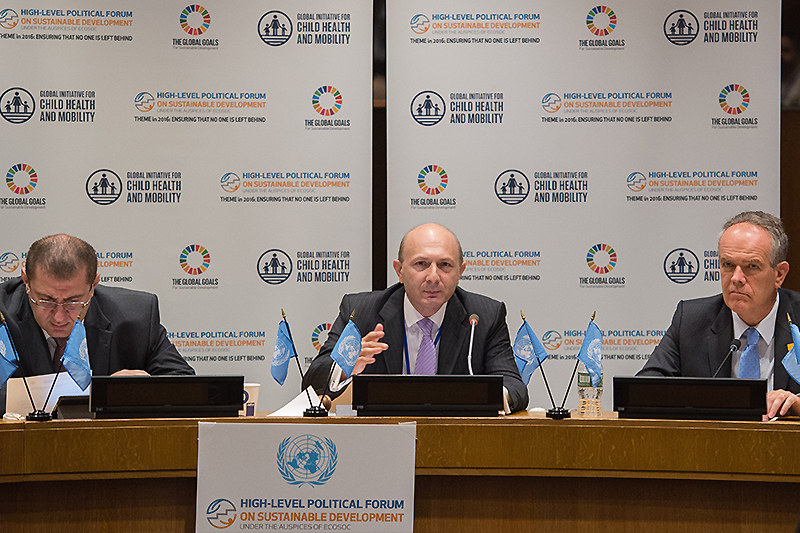
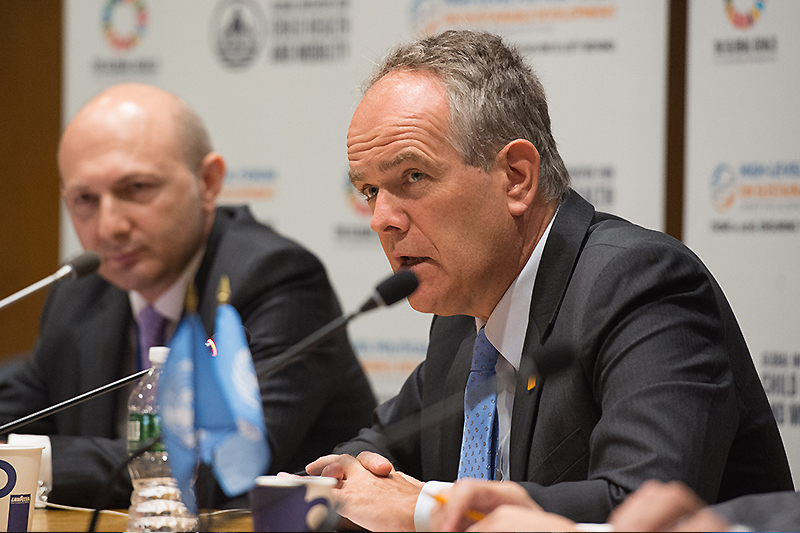
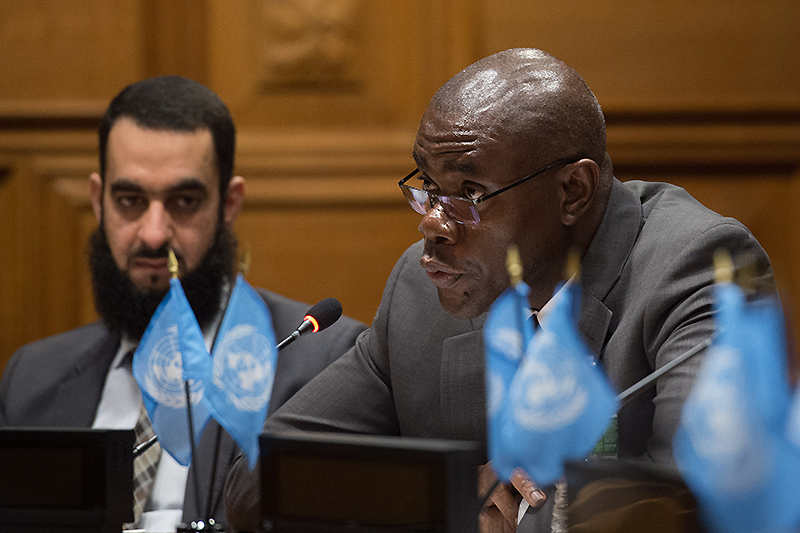
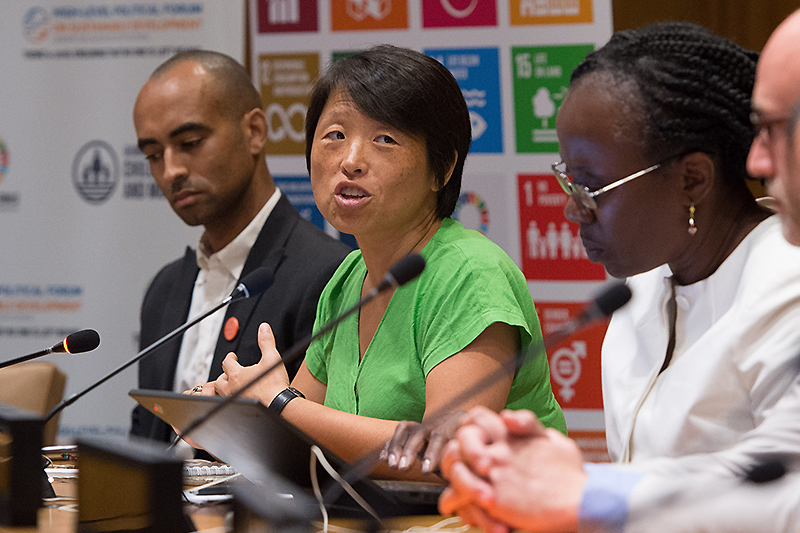
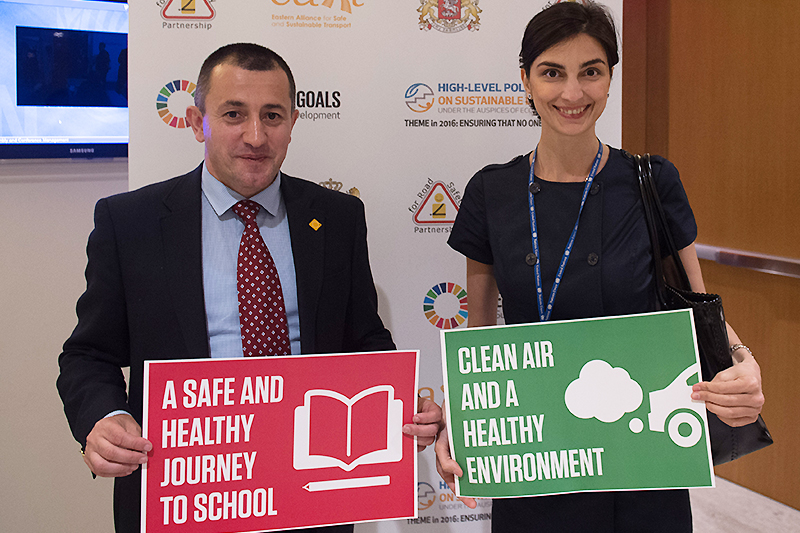
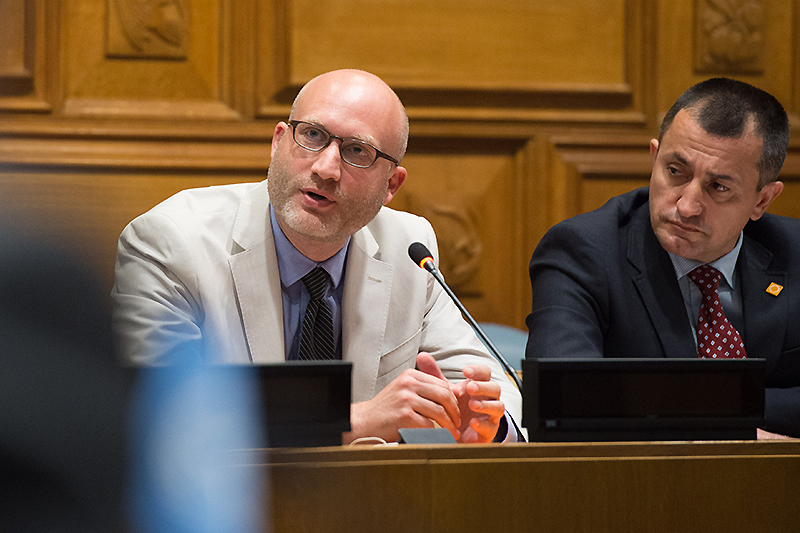
Governments, international agencies and civil society called for action to implement the SDG targets on road safety at a UN High Level Political Forum (HLPF) session on 13 July 2016.
The Government of Georgia and the FIA Foundation hosted the HLPF side event which also aimed to advance the agenda set by the Global Initiative for Child Health and Mobility including the focus on a safe and healthy journey to and from school for every child by 2030 as a priority in the SDGs.
Members of the Child Health Initiative including UNICEF, Save the Children and the World Resources Institute joined the World Health Organization and Governments from around the world at the side event titled ‘Safe and Sustainable Mobility for Children in the Global Goals’. The session was part of the High-level Political Forum on Sustainable Development, the UN’s central platform for the follow-up and review of the 2030 Agenda for Sustainable Development adopted in September 2015.
The HLPF, which adopts a Ministerial Declaration, provides political leadership and guidance on the implementation and follow-up of the SDG agenda; tracks progress towards the Goals; encourages coherent evidence-based policies for results in the SDGs; and addresses new and emerging issues. The Government of Georgia was among the first group of 22 countries to submit a voluntary review to the HLPF in 2016. In collaboration with the FIA Foundation and its partners the Eastern Alliance for Safe and Sustainable Transport (EASST) and Georgia’s Partnership for Road Safety, the Government of Georgia has included coverage of road safety in its HLPF submission.
The Permanent Representative of Georgia to the United Nations, Ambassador Kaha Imnadze, opened the session. He said: “Worldwide, we need to scale-up our response to prevent the man-made disaster of road traffic death and injury. Far too many people are being killed on the world’s roads. The response to this must be a priority for sustainable development.”
“In the last decade, Georgia’s fatalities decreased by 20% even though the number of vehicles in our country tripled. We know there is much more that needs to be done and we must increase collaboration worldwide to address this crisis.” Ambassador Imnadze was joined by Georgia’s Minister of Environment and Natural Resources Protection Teimuraz Murgulia, who emphasised the importance of sustainable transport both to reduce the burden of road traffic injury and reach targets on the environment and air quality.
Other Governments at the Child Health Initiative session included: Brazil which has played a leading role in global road safety and hosted the Global High Level Conference on Road safety in Brasilia in November 2015; Oman, which has been active on global road safety at the UN over the past decade; and Indonesia which is a leading nation on sustainable development issues, hosting the upcoming Habitat III final preparatory conference in July 2016.
Dr. Etienne Krug, Director of the Department for Management of Non-Communicable Diseases, Disability, Violence and Injury Prevention at the WHO, co-chaired the opening session which comprised input from the assembled UN Member States. He said: “The SDG target to halve road traffic fatalities by 2020 is an ambitious one, and I am often asked if it can be achieved. If we are to make progress, funding and political support for road safety will have to be stepped up significantly. We need concerted action by the international community and governments to support and implement the solutions that we know can deliver results.”
The HLPF side event also included high-level representation from UNICEF Global Chief of Child Protection Cornelius Williams who co-chaired the opening session with Dr Etienne Krug. He said: “While the global development community has focused on child survival for the under-fives, the major health burden for children in the second decade of life – road traffic injury – has not been adequately addressed. We are effectively losing the investment and the gains we have made due to the carnage on the world’s roads. As a child rights issue and as a development priority we must take action against road traffic injury.”
Deputy Permanent Representative of Brazil to the United Nations, Ambassador Carlos Duarte said: “We must acknowledge that road safety is a matter of social equity. The poor and the vulnerable are disproportionately exposed to road traffic injuries. This is an important issue for the Sustainable Development Goals as road safety has a catalyser effect for the achievement of other targets – education, health, and the eradication of poverty. And in this respect, we must step up national action and international cooperation to raise awareness, political will, and investments to achieve the SDGs.”
The session featured a strong focus on the Child Health Initiative as a partnership approach for safe, accessible, sustainable mobility to promote equity and combat poverty in the SDG agenda. Avi Silverman, FIA Foundation Deputy Director, (main photo above) said: “The Child Health Initiative is taking the ‘children first’ approach which will be needed to achieve the ambitious SDG objectives on sustainable mobility. The 2030 Agenda urges policy makers to ‘leave no one behind’ but if we are to respond to this challenge effectively, far more must be done to protect the most vulnerable on the world’s roads. As we have seen in this HLPF session, there is strong demand by governments, civil society, and international organisations for far greater support to implement the solutions for sustainable mobility which are well known and readily available. For the lives and livelihoods of millions of children and their families, this call must be heeded.”
Ben Welle, Senior Associate and Urban Transportation Planner at WRI, and Seung Lee, Save the Children Director of School Health and Nutrition, highlighted solutions to address child road traffic injury to achieve the SDG objectives both directly on road safety and in other areas of the Goals such as education and poverty eradication. Such approaches are being advanced through the Child Health Initiative which includes their organisations as partners. The initiative will focus on global advocacy research; evidence building through demonstration programme implementation; and support to countries and cities through technical assistance and catalysing national action coalitions.
Visit the Global Initiative for Child Health and Mobility here.
Learn more about the HLPF here.

